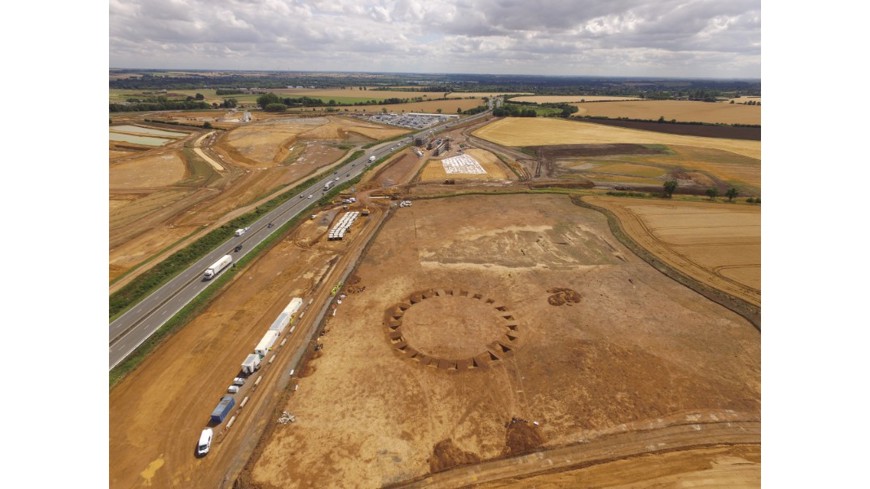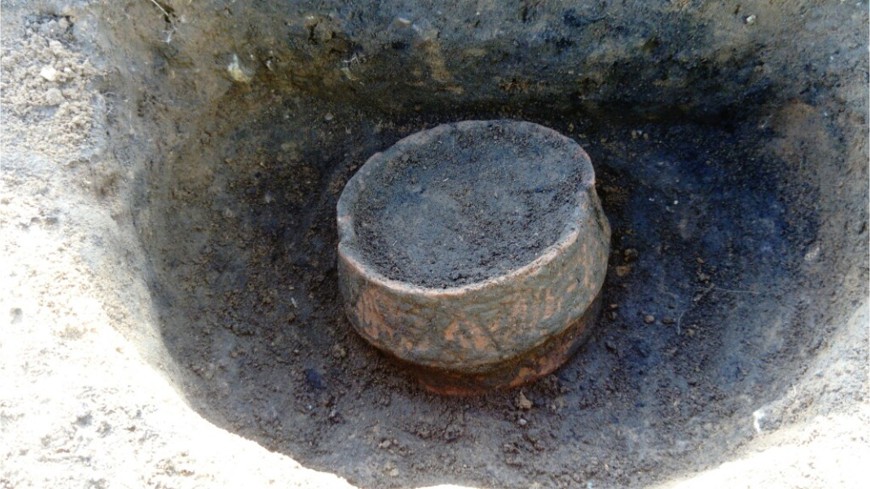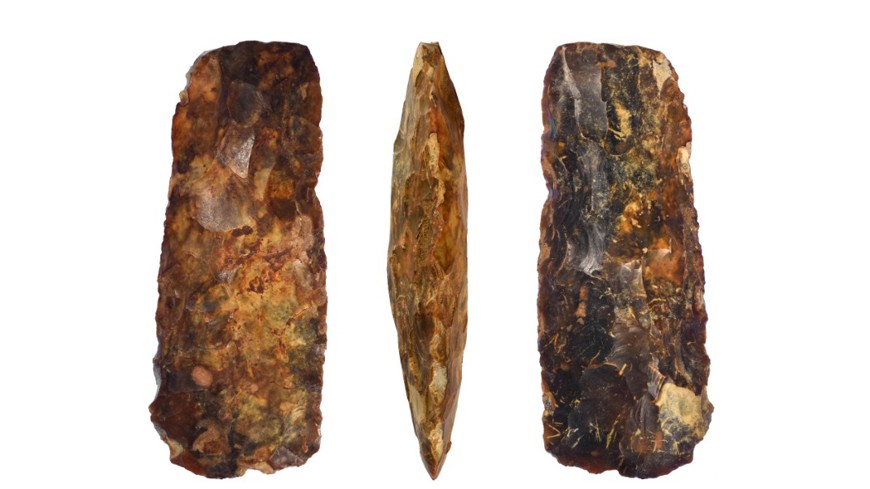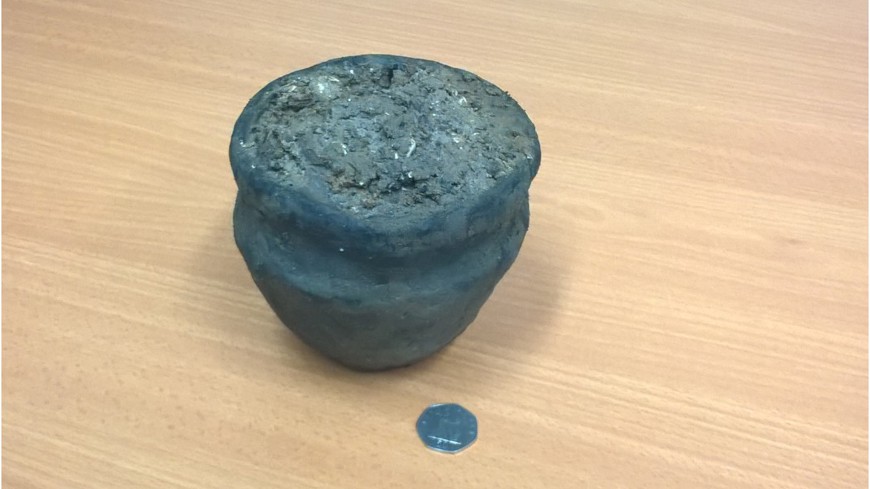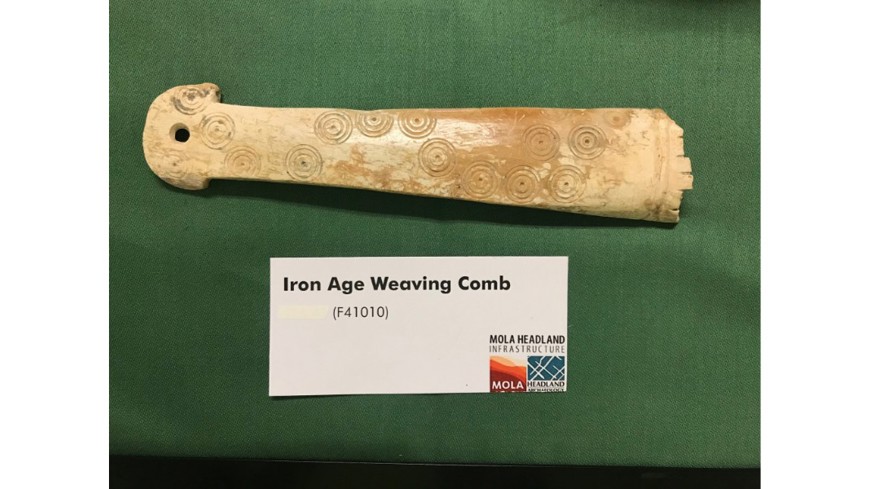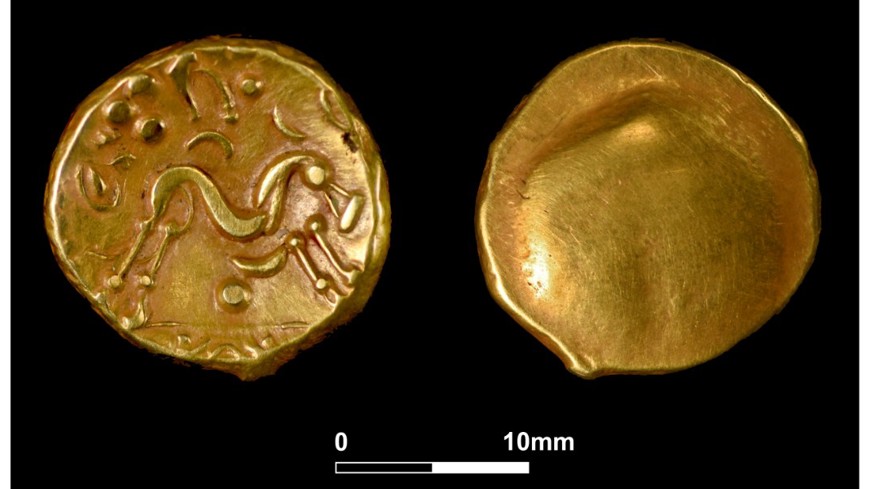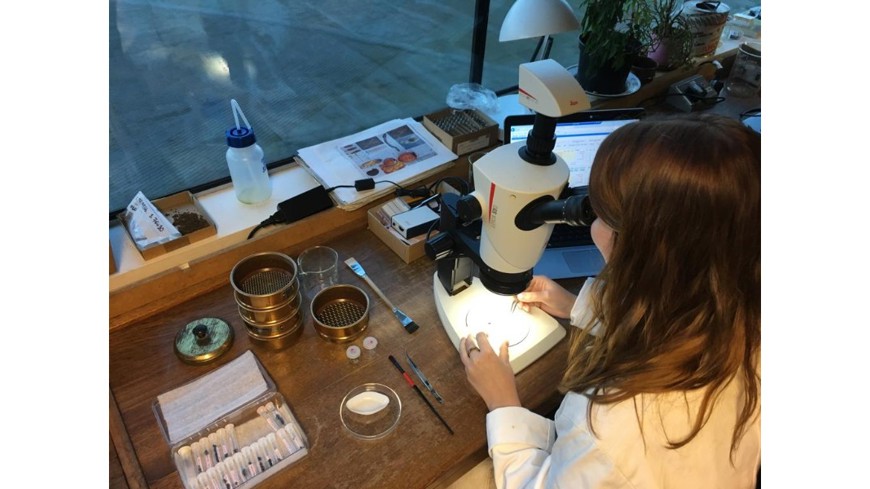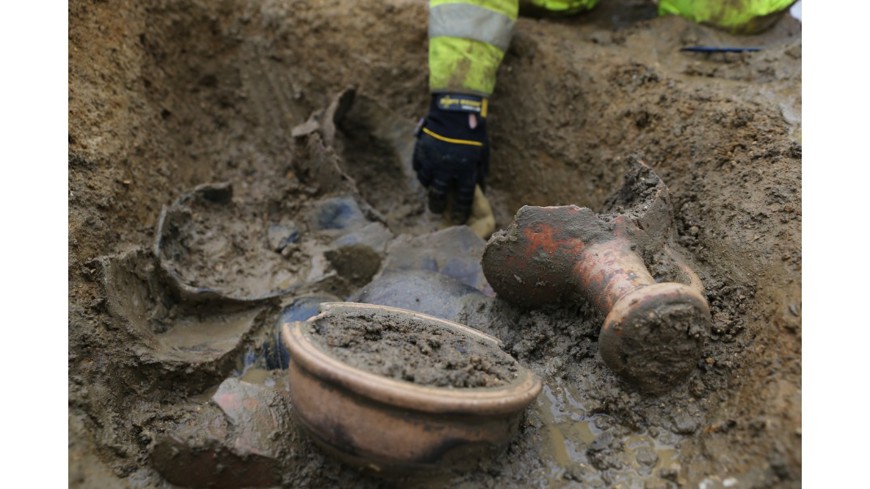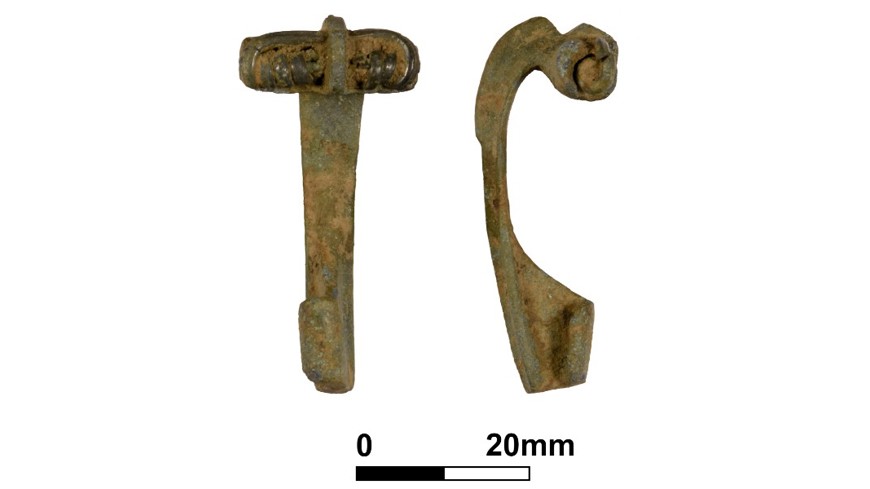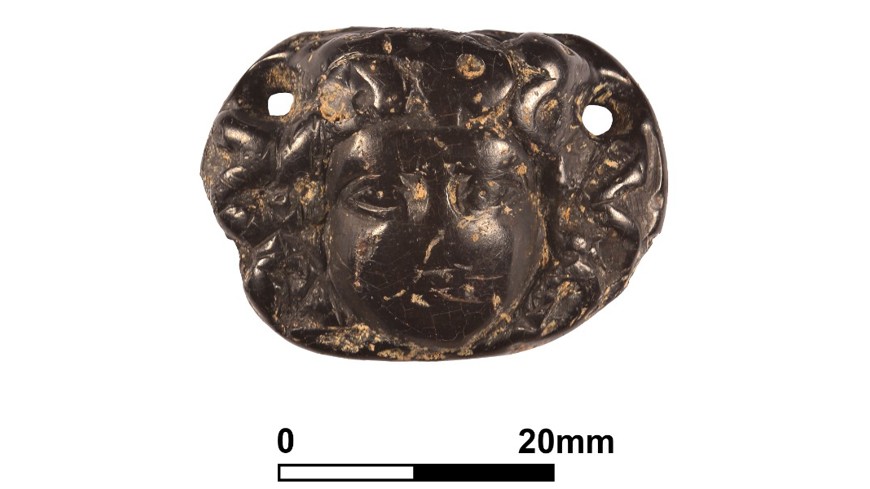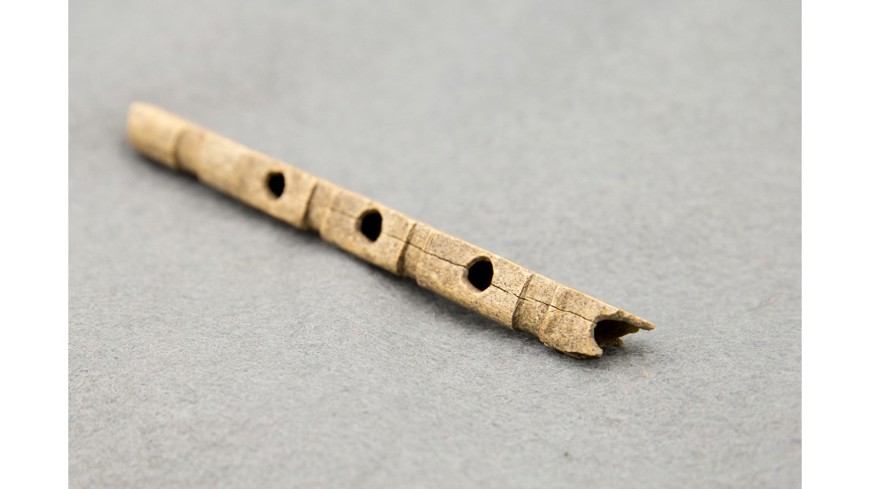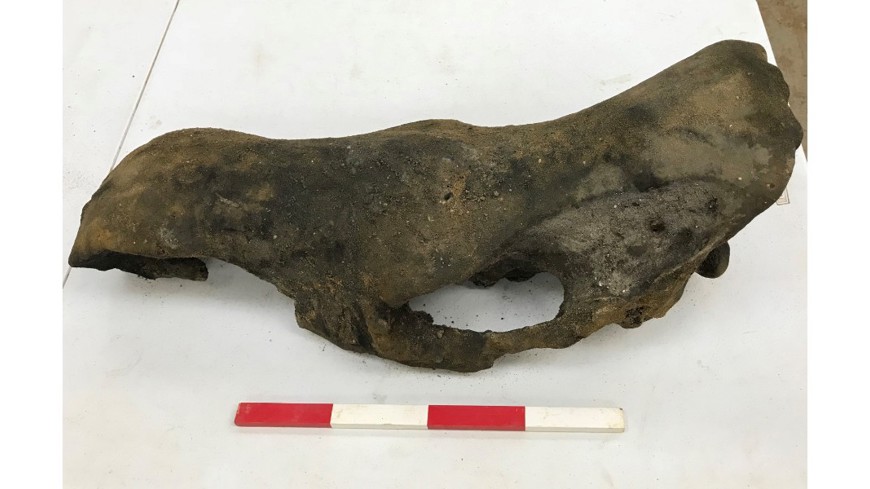A14 Cambridge to Huntingdon
With 250 archaeologists working on site during the peak of work, this scheme was one of the biggest and most complex archaeological projects ever undertaken in the UK.
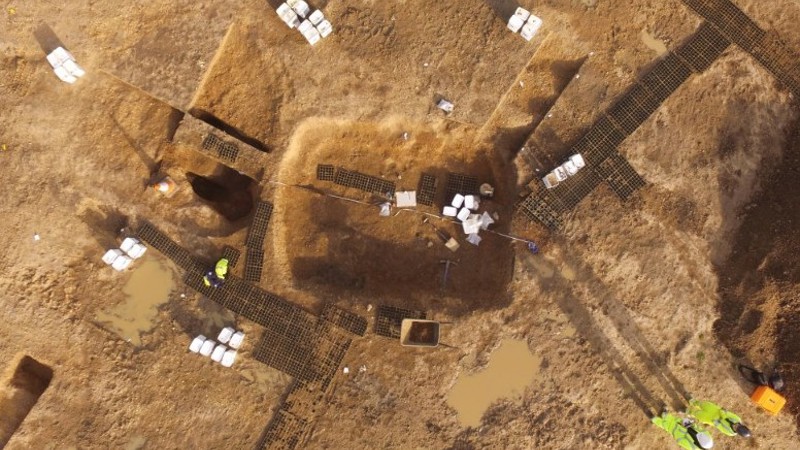
What we did and why
We worked closely with Cambridgeshire County Council to ensure that areas of possible archaeological or historical interest were either investigated or preserved.
Archaeological work began with geophysical surveys in 2009, when the scheme was first being considered. These helped to identify possible archaeological remains and make informed decisions about where trial trenching (excavations) should take place.
The programme, which covered around 350 hectares, is now complete. A team of up to 30 specialists are now recording and analysing the material. Several years of work lie ahead.
The work will help archaeologists understand how people lived, how their societies worked, their spiritual lives and the impact of major events such as the Roman conquest and collapse of Roman rule.
Nearly 40 separate excavations, covering some 350 hectares, have unearthed:
- 11 old woolly mammoth tusks and three complete woolly rhino skulls, dating back to nearly 100,000 years ago
- three Neolithic henges, between four and five thousand years old, and seven prehistoric burial grounds, most from the Bronze Age
- 15 Iron Age and Roman settlements, three Anglo-Saxon settlements and one deserted medieval village
- around 15,000 objects such as coins, brooches and ironwork, over 500 human burials and cremations, more than six tonnes of pottery and almost five tonnes of animal bone
Earliest evidence of beer making discovered
One of the most exciting discoveries was what is believed to be evidence of the first beer brewed in the UK.
The tell-tale signs of the Iron Age brew, potentially from as far back as 400 BC, were uncovered in tiny fragments of charred residues from the beer making process from earth excavated with other archaeological finds.
Further finds show the locals also had a taste for porridge and bread as well as beer.
Dr Steve Sherlock, archaeology lead for the A14, said:
“It’s a well-known fact that ancient populations used the beer making process to purify water and create a safe source of hydration, but this is potentially the earliest physical evidence of that process taking place in the UK."
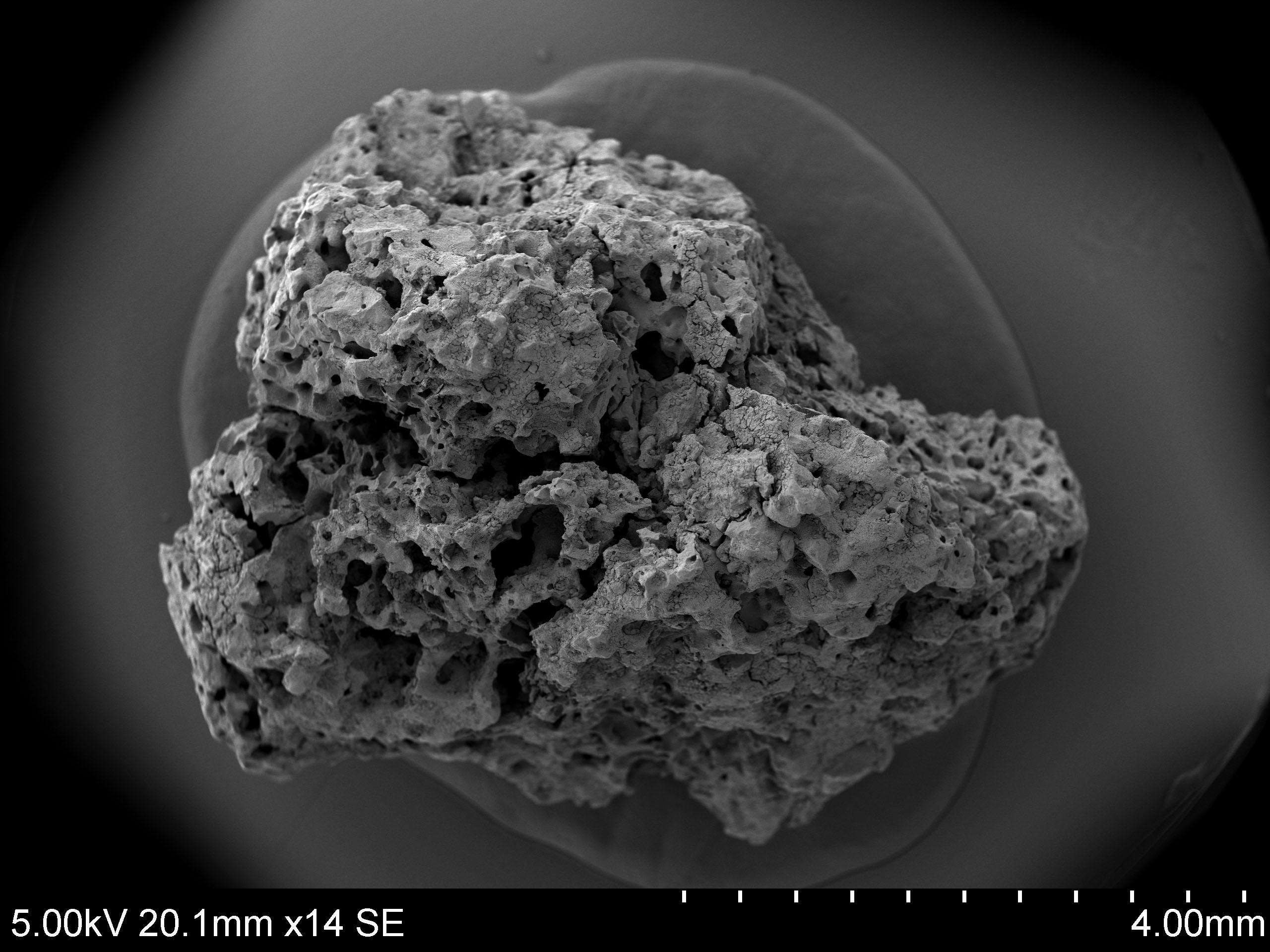
(These microscopic samples show what is believed to be the earliest evidence of beer making in the UK, potentially dating back to 400 BC.)
Find out more
You can read more about the work carried out here:
